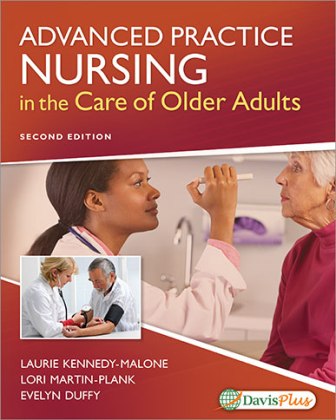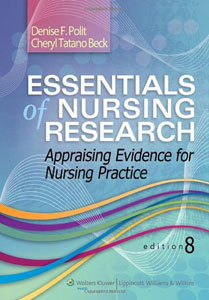Description
Test Bank For Advanced Practice Nursing in the Care of Older Adults 2nd Edition Kennedy-Malone
Advanced Practice Nursing in the Care of Older Adults 2nd Edition Kennedy-Malone Test Bank
Chapter 1. Changes With Aging
• The nurse explains that in the late 1960s, health care focus was aimed at the
older adult because:
- disability was viewed as unavoidable.
- complications from disease increased mortality.
- older adults needs are similar to those of all adults.
- preventive health care practices increased longevity.
ANS: D
Increased preventive health care practices, disease control, and focus on wellness helped people live longer.
DIF: Cognitive Level: Comprehension REF: 2 OBJ: 2
TOP: Aging Trends KEY: Nursing Process Step: Implementation
MSC: NCLEX: Health Promotion and Maintenance: Growth and Development
- The nurse clarifies that in the terminology defining specific age groups, the term aged refers to persons who are:
- 55 to 64 years of age.
- 65 to 74 years of age.
- 75 to 84 years of age.
- 85 and older.
ANS: C
The term aged refers to persons who are 75 to 84 years of age. DIF: Cognitive Level: Comprehension REF: 2, Table 1-1 OBJ: 1 TOP: Age Categories KEY: Nursing Process Step: Implementation
MSC: NCLEX: Health Promotion and Maintenance: Growth and Development
• The nurse cautions that ageism is a mindset that influences persons to:
- discriminate against persons solely on the basis of age.
- fear aging.
- be culturally sensitive to concerns of aging.
- focus on resources for the older adult.
ANS: A
Ageism is a negative belief pattern that influences persons to discriminate against persons solely on the basis of age and can lead to destructive behaviors toward the older adult.
DIF: Cognitive Level: Comprehension REF: 5
OBJ: 3 TOP: Ageism KEY: Nursing Process Step: Implementation
MSC: NCLEX: Psychosocial Integrity: Psychosocial Adaptation
- The nurse points out that the most beneficial legislation that has influenced health care for the older adult is:
- Medicare and Medicaid.
- elimination of the mandatory retirement age.
- the Americans with Disabilities Act.
- the Drug Benefit Program.
ANS: A
The broadest sweeping legislation beneficial to the older adult is Medicare and Medicaid.DIF: Cognitive Level: Application REF: 16 OBJ: 6
TOP: Legislation KEY: Nursing Process Step: Implementation MSC: NCLEX: N/A
- The nurse clarifies that a housing option for the older adult that offers the privacy of an apartment with restaurant-style meals and some medical and personal care services isthe:
- government-subsidized housing.
- long-term care facility.
- assisted-living center.
- group housing plan.
ANS: C
Assisted-living arrangements offer the privacy of an apartment or condominium with meals prepared and served, limited medical care, and a variety of personal services.
DIF: Cognitive Level: Application REF: 14 OBJ: 9 TOP: Housing Options KEY: Nursing Process Step:
Implementation MSC: NCLEX: Physiological Integrity: Physiological Adaptation
- The 75-year-old man who has been hospitalized following a severe case of pneumonia is concerned about his mounting hospital bill and asks if his Medicare coverage will pay for his care. The nurses most helpful response is Yes. Medicare:
- pays 100% of all medical costs for persons older than 65.
- Part B pays hospital costs and physician fees.
- Part A pays for inpatient hospital costs.
- Part D pays 80% of the charges made by physicians.
ANS: C
Medicare Part A pays inpatient hospital costs, Part B pays 80% of physicians charges, and Part D helps defray prescription drug costs.
DIF: Cognitive Level: Application REF: 16 OBJ: 6
TOP: Medicare Provisions KEY: Nursing Process Step: Implementation MSC: NCLEX: Psychosocial Integrity: Coping
and Adaptation
- The daughter of a patient who has been diagnosed with terminal cancer asks which documents are required to allow her to make health care decisions for her parent. The nurses most informative response is:
- Advance directives indicate the degree of intervention desired by the patient.
- A Do Not Resuscitate document signed by the patient transfers authority to the next of kin.
- A durable power of attorney for health care transfers decision-making authority for health care to a designated person.
- A living will transfers authority to the physician. ANS: C
A durable power of attorney for health care transfers the authority for decision making to a designated person.
DIF: Cognitive Level: Application REF: 19 OBJ: 11
TOP: Advance Directives KEY: Nursing Process Step: Implementation MSC: NCLEX: Psychosocial Integrity: Coping and Adaptation
• The daughter of a resident in a long-term care facility is frustrated with her 80-year-old mothers refusal to eat. The nurse explains that the refusal to eat is a behavior that is an:
- effort to maintain a portion of independence and self direction.
- indication of approaching Alzheimer disease.
- effort to gain attention.
- indication of the dislike of the institutional food.
ANS: A
Loss of independence and control is a significant issue for the older adult. Some residents will exercise whatever control they may retain.
DIF: Cognitive Level: Application REF: 21 OBJ: 11
TOP: Loss of Independence KEY: Nursing Process Step: Implementation MSC: NCLEX: Psychosocial Integrity: Coping and Adaptation
• The nurse clarifies that the conditions of a living will go into effect when:
- the patient declares that desire in writing.
- a family member indicates the desire for curative therapy to cease.
- two physicians agree in writing that the criteria in the living will have been met.
- the physician and a family member agree that the criteria in the living will have been met.
ANS: C
Two physicians must agree in writing that the criteria of the living will have been met before the document can go into effect.
DIF: Cognitive Level: Application REF: 19 OBJ: 11
TOP: Living Wills KEY: Nursing Process Step: Implementation MSC: NCLEX: Safe, Effective Care Environment: Coordinated Care
- In the 1980s, Medicare initiated a program of diagnosis-related groups (DRGs) to reduce hospital costs by:
- classifying various diagnoses as ineligible for hospitalization.
- allotting a set amount of hospital days and prospective payment on the basis of the admitting diagnosis.
- specifying particular physicians to treat specified diagnoses.
- using frequency of a particular diagnosis to set a payment schedule.
ANS: B
DRGs set up a system of preset hospitalization time and payment on the basis of the admitting diagnosis.
DIF: Cognitive Level: Comprehension REF: 16 OBJ: 6
TOP: DRGs KEY: Nursing Process Step: N/A MSC: NCLEX: N/A
- When discussing extended care with a patient who has had a hip replacement andneeds physical therapy, the nurse would recommend a(n):
- basic care facility.
- skilled care facility.
- subacute care facility.
- assisted-living residence.
ANS: B





Be the first to review “Test Bank For Advanced Practice Nursing in the Care of Older Adults 2nd Edition Kennedy-Malone”